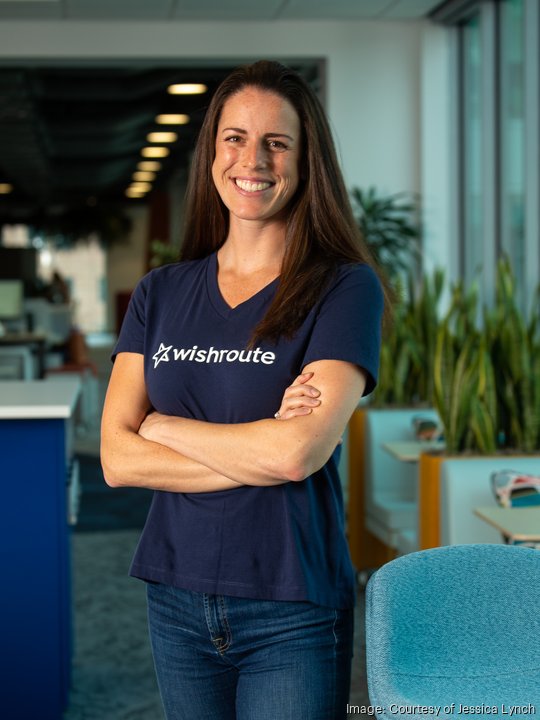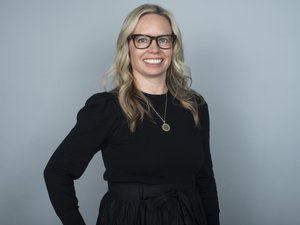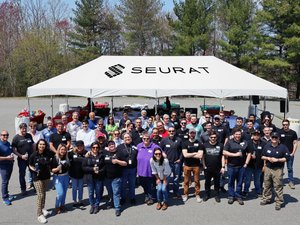
When Jessica Lynch founded Wishroute in 2018, she didn’t plan on pursuing an M&A deal as her exit strategy. Her startup partnered with gyms and wellness companies to offer healthy habit coaching from real people through texts.
But when life throws you a pandemic and worsening market conditions, Lynch said learning to adapt to changes and to pivot becomes an even more important skill for a startup founder.
“It’s been a wild journey full of ups and downs,” Lynch said.
Eight months and more than sixty pitch sessions with companies later, Wishroute has announced it was acquired by Suggestic. The San Francisco-based company helps food, nutrition, health, and wellness companies deliver their own health and wellness programs. As part of the deal, Wishroute’s IP was also licensed to the companies Guidely and Runzy.
Challenges in recent years
Wishroute started out by serving gyms, Lynch said. The company helped the gyms keep their members on track with things like meal prepping and mindfulness habits between sessions. Then, the pandemic hit and shut down their customers.
“That was a really tricky moment. Not that we didn’t have the perfect solution for them, but that it took probably six months for gyms to realize this was an occasion that was going to meaningfully change the next year or two,” Lynch said. “There was a lot of let’s wait and see. And as a startup you can’t afford to pause for three to six months.”
So Wishroute took a broader look at the ecosystem, and specifically at health and wellness companies. Lynch said these companies’ challenge is retaining users, which Wishroute was designed to help with. Wishroute pivoted completely and rebranded as a “white-label, human-powered engagement company" for health and wellness companies that largely focused on mobile apps and product subscriptions, Lynch said.
Then the market shifted again last summer. Funding began to dry up and companies started tightening their belts.
“We weren’t far enough along in that new trajectory when the kind of expectations for seed rounds changed fairly quickly when the market shifted last summer,” Lynch said.
In addition to the challenging market conditions, Wishroute also began to bump up against issues scaling. The company was operating in a pre-ChatGPT world and used humans to send its check-in messages. Each of those coaches needed to be trained on a customer’s brands and products.
“I assumed we would find the right formula and then be able to repeat it. But one of the assumptions that I realized was not as easy as I thought was that we could use the same formula across companies,” Lynch said. “And we really found that each health and wellness mobile app we were working with had more nuances and differences than we expected.”
Lessons learned from M&A
Lynch said she knew that if Wishroute focused on working with one company, they could have a “massive impact.”
So, Lynch started preparing herself to run an M&A process for the first time. She made a list of Wishroute’s current and prospective clients. Her investors and network helped make introductions to founders and CEOs, and she also met with investment bankers to learn more about the process.
Lynch said they got close to a deal with a mental health company in February that fell through. She said they ultimately closed a deal of a similar size — the companies aren’t disclosing the details — with Suggestic, Guidely and Runzy.
Suggestic wanted to launch a new coaching product on top of their existing platform. Lynch said they both realized that generative AI models could train ChatGPT or some other program on coaching based on the texts that Wishroute’s guides had already written to users. Suggestic is calling its new product WellnessGPT.
“We sped up their time to market by having that…ready to go with proven results,” Lynch said.
Lynch has joined Suggestic as a product advisor and Guidely as head of product. She said all of Wishroute’s six employees have found new roles at other companies.
Going forward, Lynch said she wants to help other founders navigate the M&A process, especially those not large enough to hire an investment banker.
“When you have $100 million in revenue, anyone will represent you, try to help you sell,” Lynch said. “It was a big learning curve but I’m proud I pulled it off and had such a lasting result for all the hard work that me and the team and our investors put in.”
Subscribe to the Morning Edition or Afternoon Edition for the business news you need to know, all free.








